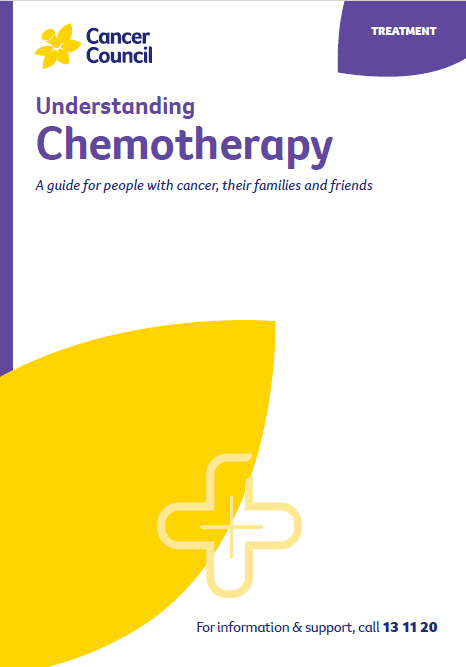- Home
- About Cancer
- Cancer treatment
- Chemotherapy
- Having chemotherapy
- Other ways of having chemotherapy
Other ways of having chemotherapy
There are other ways of having chemotherapy, depending on the drugs being used and the type of cancer you have. You may have oral chemotherapy, injections or be given creams that you apply to the skin.
Learn more about:
Oral chemotherapy
Some types of chemotherapy can be taken as tablets or capsules at home. Your doctor, nurse or pharmacist will tell you how and when to take them, and how to handle the drugs safely.
Injections (local chemotherapy)
Less commonly, chemotherapy can be injected using a needle into different parts of the body, including:
- into a muscle, usually in your buttock or thigh (intramuscular)
- under the skin (subcutaneous)
- into the fluid around the spine (intrathecal – this is also known as a lumbar puncture)
- into an artery (intra-arterial)
- into the abdomen (intraperitoneal)
- into the outer lining of the lungs (intrapleural)
- into the bladder (intravesical)
- into the tumour (intralesional; this method is rare).
Cream
Some skin cancers are treated using a chemotherapy cream applied directly to the skin. This is called topical chemotherapy. For more on this, see Topical treatments for skin cancer.
Transarterial chemoembolisation (TACE)
Used for primary liver cancer or some types of cancer that have spread to the liver, TACE involves injecting chemotherapy directly into the liver tumours. The chemotherapy will either be mixed with an oily substance or loaded onto tiny plastic beads. The blood vessels feeding the tumour may also be blocked (embolisation).
→ READ MORE: Waiting for chemotherapy
Podcast: Making Treatment Decisions
Listen to more episodes from our podcast for people affected by cancer
More resources
A/Prof Kate Mahon, Director of Medical Oncology, Chris O’Brien Lifehouse, NSW; Katherine Bell, Dietetics Department, Liverpool Hospital, NSW; Brigitta Leben, Dietetics Department, Liverpool Hospital, NSW; Sophie Michele, 13 11 20 Consultant, Cancer Council SA; Dr Jess Smith, Medical Oncologist, Macquarie University Hospital, NSW; Karene Stewart, Consumer; Julie Teraci, Clinical Nurse Consultant, Skin Cancer and Melanoma, Cancer Network WA.
View the Cancer Council NSW editorial policy.
View all publications or call 13 11 20 for free printed copies.

